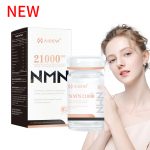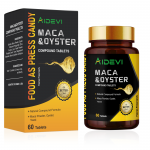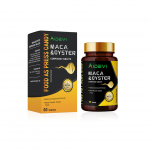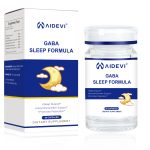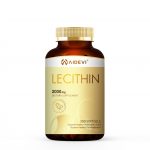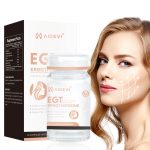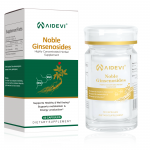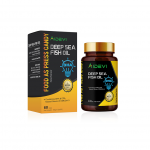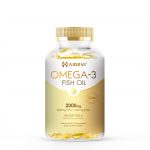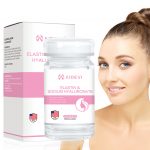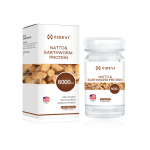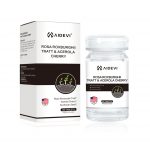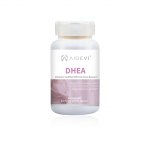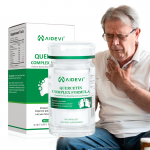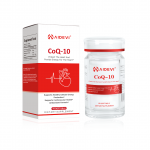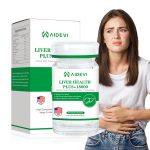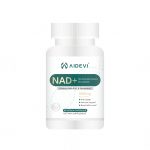NMN Supplements and Lung Cancer Prevention: New Insights and Guidelines
In the ongoing quest to combat lung cancer and promote lung health, emerging research explores innovative approaches that offer promise and potential benefits. One such avenue delves into the world of Nicotinamide Mononucleotide (NMN) supplements and their potential role in lung cancer prevention. The American Cancer Society has recently updated its guidelines to enhance early detection and reduce lung cancer mortality, recognizing the importance of reaching individuals at risk. In this context, we explore the fascinating connection between NMN, a naturally occurring nucleotide, and its potential to safeguard lung health and mitigate the risk of lung cancer. As we delve into the details, we'll uncover how NMN may serve as a valuable tool in the fight against this formidable disease.
According to CNN news, the American Cancer Society has updated its lung cancer screening guidelines, recommending screening for older adults with a history of smoking, regardless of when they quit. This change aims to enhance early detection and reduce lung cancer mortality. Expanding the criteria may help reach more at-risk individuals, particularly in underserved communities. While smoking is a significant risk factor, other indicators like family history and asbestos exposure should also be considered. Early detection through low-dose CT scans can significantly improve survival rates in the fight against lung cancer.
Symptoms of lung cancer
Symptoms of lung cancer can vary and should be taken seriously. If you or someone you know experiences any of these persistent symptoms, it is essential to seek medical attention for proper evaluation:
Continual Cough: A prolonged cough that may worsen over time.
Coughing Up Blood: Hemoptysis, the act of coughing up blood or bloody mucus.
Chest Discomfort: Pain in the chest, shoulders, or back that may exacerbate with deep breaths, coughing, or laughter.
Breathing Difficulty: Shortness of breath, even during light physical activity.
Wheezing: Audible wheezing sounds, particularly during exhalation.
Voice Changes: Persistent voice changes or hoarseness.
Unexplained Weight Loss: Significant weight loss without a clear cause.
Fatigue: Overwhelming tiredness or persistent weakness.
Appetite Loss: A noticeable decline in appetite and food consumption.
Frequent Infections: Frequent lung infections like bronchitis or pneumonia.
Neck and Facial Swelling: Swelling in the neck and face, potentially due to enlarged lymph nodes.
Swallowing Challenges: Difficulty in swallowing, known as dysphagia.
It is crucial to note that early-stage lung cancer may not always exhibit noticeable symptoms, emphasizing the importance of regular screenings, especially for individuals at higher risk due to factors such as smoking history or environmental exposures. If any of these concerning symptoms persist, consult a healthcare professional for a thorough evaluation. Early detection can significantly enhance the chances of successful lung cancer treatment.

How I prevent lung cancer with NMN Supplements?
Nicotinamide Mononucleotide (NMN) is a naturally occurring biologically active nucleotide present in various organisms. Often used in cosmetics, NMN is typically found in the form of a white to slightly yellow crystalline powder with no noticeable odor. Proper storage entails keeping it at room temperature, in dry conditions, and protected from light, with a shelf life of 24 months.
NMN is naturally present in the human body and can also be found in select fruits and vegetables. As a derivative of vitamin B3, NMN falls within the category of vitamin B derivatives, actively participating in numerous biochemical reactions within the body that are closely linked to functions related to immunity and metabolism.
NMN and Cancer
This same principle may potentially extend to NMN. NMN plays a crucial role in maintaining the proper function of healthy cells and safeguarding their DNA and epigenome. As a result, NMN might also have the potential to act as a preventive measure against cancer, given that mutations in DNA and the epigenome are known contributing factors in the development of cancer.
Nicotinamide Mononucleotide (NMN) is a molecule that has generated interest in the context of lung health and its potential to prevent lung cancer. While the direct link between NMN and lung cancer prevention is still an area of ongoing research, there are several mechanisms through which NMN may play a role in reducing the risk of lung cancer.
Cellular Rejuvenation: NMN is known for its role in cellular rejuvenation and DNA repair. It has the potential to enhance the body's natural repair mechanisms, preventing the accumulation of genetic mutations that can lead to cancerous growth in lung cells.
Mitochondrial Function: NMN helps maintain mitochondrial function. Healthy mitochondria are crucial for overall cell health and can reduce the risk of cellular damage that might contribute to lung cancer development.
Immune Support: NMN is closely linked to immune function. A strong and well-functioning immune system is essential for identifying and eliminating cancerous or precancerous cells in the lungs.
Anti-Inflammatory Properties: Chronic inflammation is a known risk factor for various cancers, including lung cancer. NMN may help reduce chronic inflammation, which, in turn, can lower the risk of cancer development.
Epigenetic Regulation: NMN has been shown to play a role in epigenetic regulation, controlling how genes are expressed. By maintaining proper epigenetic marks on genes related to cancer suppression, NMN may help prevent lung cancer.
I personally use AIDEVI NMN19800. It's one of the top NMN supplements on the market today. Its ingredients are safe and are easily absorbed by our bodies. If you're unsure about which NMN supplements are best for you, you can try the one I use.
Special 10% Off Discount Code : 9XK7CWUEMMZZ
It's important to note that while NMN holds promise in reducing the risk of lung cancer, more extensive research, including clinical trials involving humans, is needed to establish the direct connection and determine the optimal dosage and administration for lung cancer prevention. Additionally, lifestyle factors such as smoking cessation and environmental exposure should also be considered in lung cancer prevention strategies.



